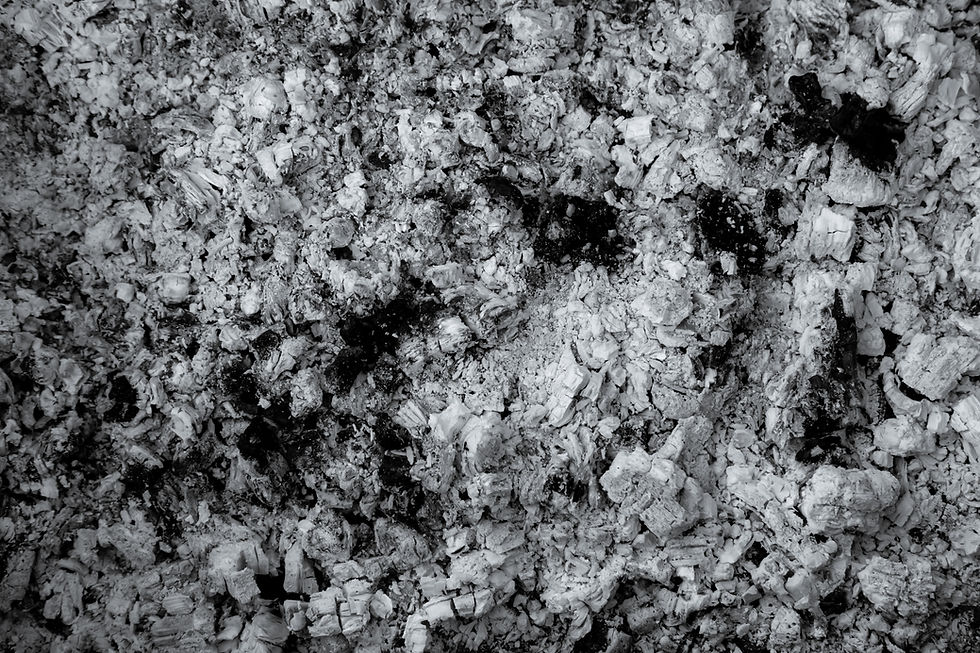Tending the Roots
- Rayven Holmes

- Jan 5, 2024
- 3 min read
Updated: Jan 6, 2024

I enjoy gardening. My favorite part of it isn’t the harvest, but the planting or the act of creating a space for roots to grow. As I’ve moved through my grief and taken stock of my past I’ve found myself looking at the way that shows up in my present. The little hobbies and practices I partake in that allow me to feel something I missed in my youth. I don’t have roots. I have the whispers of roots. For years, I told people the reason for this was the fact that I grew up a military brat. In reality, we stopped moving when I was about six - a rarity in the military community- and we could have easily established roots had my father been keen on nurturing their growth. He wasn’t.
As an adult I carried that same attitude, never letting the tendrils of who I am stretch any further than the surface of the soil. Then I married someone who loved the fact that my long-term plans included wanting a homestead. I wanted to start small with a garden, learn the basics, some trial and error, and then expand once life made a way. I think he, a military brat whose family moved every few years, found the thought of putting down literal roots with someone who understood the wanderlust seed our upbringings planted to be intoxicating and affirming.
In the wake of my mother’s death, I’ve made a point to spend more time on genealogy. Allowing myself to take the time when the mood strikes to look up obituaries and stare at the faces that look similar to mine who walked this earth but never walked it by my side. Some of that is my own doing. I shunned the idea of connecting with the people who could provide me with something more than shallow earth because I wasn’t ready for what digging into the ground meant. Now that I do it religiously every spring, toiling away and breathing life into slumbering earth, I can’t help but wonder if gardening is both a metaphor for what I’ve needed and a continuation of my desire to escape the pain that comes with connecting to the roots of my family tree.
Their stories weaved together to create the tapestry that became my existence and yet I know none of them. I only know fragments pieced together with ancestry hints and reading between the lines of family conversations, much of which requires spending a good amount of time separating fact from fiction. A daunting task as the people who could provide insight into the gray areas are no longer among the living. I have to trace the roots of the dead and hope that the knowledge gained is enough to breathe new understanding into my portion of the tree. I want to give my children roots beyond my garden, but the dead don’t speak so how does one go beyond the surface in their absence?
Figuring out who we are also involves figuring out who we were collectively because so many of the narratives I was fed as a child are rooted in the secrets hidden under the soil of our tree. Marriages out of necessity, unclaimed children, heroes denied their rights. It's all there. The good, bad, and downright ugly; but generations later it showed up as lectures on abstinence, these don't work by the way, in unrealistic expectations for how to “keep a man”, and even more detrimental requirements that taught assimilation in hopes of being accepted or at the very least comfortably tolerated. Who were we trying to become before we picked up these narratives that were meant to keep us safe from harm?
As I look to the spring and prepare for the planting ahead, I can’t escape the fact that if I want a truly bountiful harvest I have to also tend the soil of my family tree along with the literal soil underneath my feet. Allowing my roots to finally reach deep and ask the tough questions about who we were, who we are, and where must we travel to reach wholeness.
Copyright(c)2024 Rayven Holmes





Comments